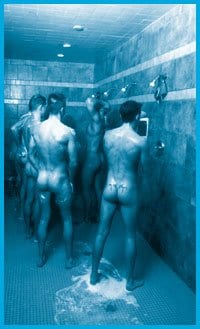It’s gotta be a bitch being a role model. Especially if you’re famous. Especially if you’re dead.
Consider poor Virginia Woolf. The Bloomsbury bugger-lover died thinking herself a writer. And with nine novels and countless luminous letters, diaries and essays to her credit, who could blame her?
But later generations have seen her differently, mining her enviably bohemian life for signs of pain and suffering, positioning her as a poster child for this or that contemporary cause.
Gay men and lesbians were quick to salute Woolf as one their own, figuring her 29-year marriage to Leonard was nothing beside her affairs with strong-willed women (novelist Vita Sackville-West, composer Ethel Smyth) and friendships with gay men, including such latter day icons as Lytton Strachey and EM Forster.
But others have also got in on the revisionist fun. Depending on your point of view and with several biographies and countless critiques on the market, you can take your pick – Woolf was a psychiatric survivor, proto-feminist, class-conscious snob, a victim of child abuse (a step-brother had an unhealthy interest), a Sapphic specialist and/or a political engagé.
As for the books, well, who reads those unless they’ve been turned into a film and the only one producers seem to have heard of is Mrs Dalloway (1925), which inspired both the 1998 film of the same name starring Vanessa Redgrave and indirectly through Michael Cunningham’s Pulitzer Prize-winning book, the more recent production of The Hours, starring Nicole Kidman as a damp dormouse of a Woolf.
An innocuous little Danish doc running this month on TVOntario echoes some of the recent PC thinking on Woolf, positioning her as both a feminist martyr and a sexual revolutionary. The War Within: A Portrait Of Virginia Woolf (10pm, Thu, Mar 27) retells the now classic tale of Woolf, her sister Vanessa and their friend, the gay biographer Lytton Strachey. The sisters were sitting in a Bloomsbury drawing room in 1908 when Strachey walked in, pointed to a stain on Vanessa’s white dress and said, “Semen?”
“With that one word,” wrote Virginia, “all barriers of reticence and reserve went down.”
It’s a cute story but it obscures the distance between them and us. Woolf and her circle may have been more advanced than their Victorian forbears, but compared to even the most reticent of today’s teenagers, they were sexual innocents. Strachey’s own very gay life couldn’t be told until the 1960s and not fully until 1995, when Michael Holroyd issued a revised version of his celebrated biography. Woolf’s own complicated sexuality was slow to enter the public domain. Sackville-West, says the TVO doc, sold most of Virginia’s letters but kept some of the more intimate epistles, including one acknowledging the end of their physical relationship.
But what’s really disappointing is the elegiac tone. To watch this film, you’d think Woolf’s whole long, accomplished, witty, charmed, hard-working life had been nothing but one long prelude to death, depression and diminishment.
And if that’s true of the doc, it’s even more true of The Hours, a dour, self-important film that reduces Woolf to the sum of her frailties. The film starts and ends with a suicidal Woolf walking into a river and in between she considers death from all angles, going eye to eye with a dead bird and meditating on the necessity of killing a fictional character. Why does somebody have to die? asks her husband. For the sake of contrast, says Woolf. Death makes life more appealing for those left living. Which means, I guess, that this is supposed to be a life-affirming tale, though at times the evidence is slight. Seldom has a movie gone longer without even a measure of comic relief. Zorba The Greek it’s not.
But then contemporary taste doesn’t run to heroes and large, public dramas. We prefer smaller-than-life folks working on their “issh-ues” within the constricted sphere of private life. Hence the need for victims of all stripes.
The only problem with this is that Woolf doesn’t fit the mould. Her work invites awe, not pity. You can read whole swathes of her work without getting the least intimation that she is either depressed or suicidal. Judging from her diaries, she was intense, energetic, chatty, charming, witty, sociable and endlessly dedicated to her art. She had a supportive husband, astonishing friends and a career that engaged all her many talents. At times, her biggest problem seems to have been an inability to deal with the servants.
Her energy, discipline and critical acumen are awesome, as is her endless questioning of human nature. Of one friend she says: “Why so dull? He runs off my mind like a torrent of lukewarm water, but leaves it stained and tired. It is like listening to a perpetual leading article, so admirable, so well meaning, so shallow.” Call this cruel, if you like – and sharp and smart and precise – but never doubt the talents of the woman writing it. However you look at it, that ain’t no victim talking.

 Why you can trust Xtra
Why you can trust Xtra


